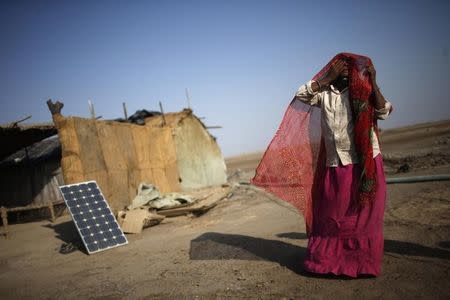Environmentalists unimpressed by "pro-corporate" budget

By Nita Bhalla NEW DELHI (Thomson Reuters Foundation) - The new government's budget shows no real commitment towards the environment and is not transformational because it does not allocate enough funds towards promoting renewable energy or public transport and appears to favour corporates over people, environmentalists said on Friday. Prime Minister Narendra Modi's government, which swept to power in May, said on Thursday that it would invest in very large solar power projects and establish a fund to help farmers adapt to changing weather patterns as a result of climate change. But some environmental groups said that while they welcomed plans to boost clean energy such as solar and wind, the budget proposals left much to be desired. "The steps on renewable energy and energy efficiency are not transformational and the attempt to force fit coal production to clear the irrational power proposals, is a signal that the reality of climate change has far from been recognised by this government," said Vinuta Gopal, head of climate and energy at Greenpeace India. "It's good that the government is talking of investments in renewable but it is largely focused on large scale renewables and not on decentralized renewable energy for meeting the electrification needs of rural India," Gopal added. Finance Minister Arun Jaitley told parliament that renewable energy was "a very high priority" and announced around $100 million to build four "ultra mega solar power projects" in the states of Rajasthan, Gujarat, Tamil Nadu, and Jammu and Kashmir. Jaitley said his coalition government, which is led by the Bharatiya Janata Party, also planned to launch scheme for solar power-driven agricultural water pumping stations, develop solar parks on canal banks and give tax breaks on imported solar components. The Centre for Science and Environment, a leading Delhi-based environmental think-tank, agreed with Greenpeace saying the biggest potential for solar energy will come from decentralised and off-grid solutions. CSE's director Sunita Narain said it was important to invest in smaller power plants that provide clean energy to millions across India’s grid and remote villages that have electricity lines but no power. Instead, she said, budget 2014/15 falls back on the “big” solar plants. LACK OF ACCESS TO ELECTRICITY India is desperate for power, and coal is expected to remain at the heart of its energy security for decades. Seventy million households – up to 40 percent of the country's 1.2 billion people - have no access to electricity. Narain also said allocations for building underground trains networks to boost public transport were way too little. "Transportation is an important focus area, but budget 2014 does not provide directions that will work," said Narain. "The FM sets aside 100 crore rupees ($18 million) for metro projects in Lucknow and Ahmedabad. But the fact is that metro systems cost between 150 crore to 300 crore per km to build. So, is this 100 crore going to build one km or just go into feasibility studies?" Greenpeace's Gopal called the Modi's budget "paradoxical" saying that it "invites the foreign hand to key sectors in the country, though it has balked at any support that could raise uncomfortable questions on human rights or environmental violations". "The budget is a pro-corporate (one) as was expected, with little to cheer for the people and the environment," said Gopal.
